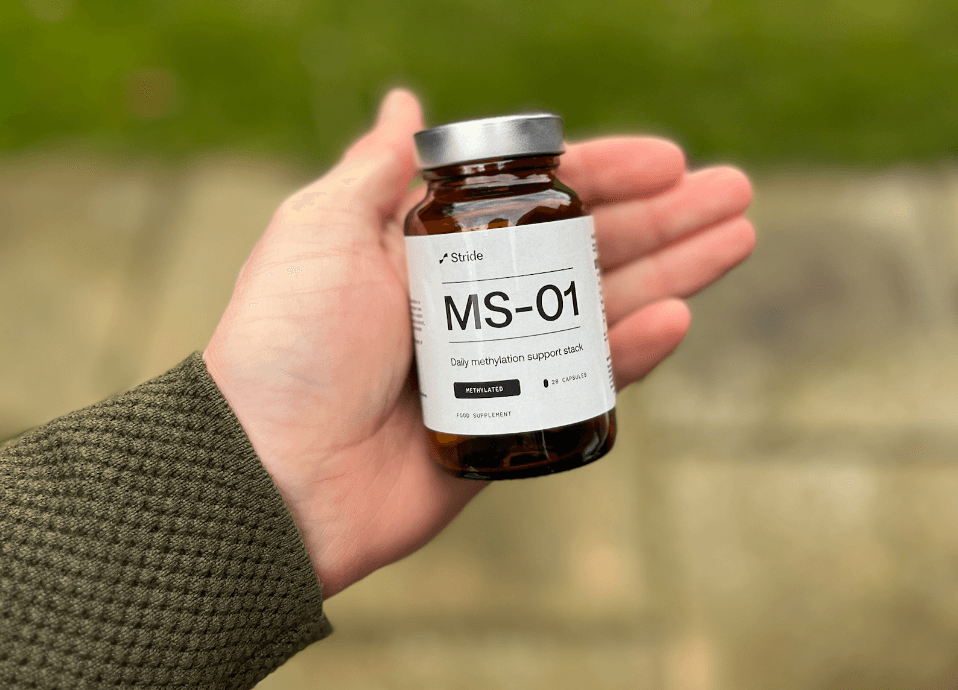Proactive Steps I’m Taking to Beat Cold and Flu Season
Every autumn, the same story plays out: the temperature drops, someone sneezes on the train, and suddenly everyone’s fighting something off. This year, I’m being more proactive — not waiting for symptoms, but strengthening the systems that keep me well in the first place.
It’s not about living in a bubble. It’s about being ready.
Morning sunlight — come rain or shine
One of the simplest things I’ve borrowed from Andrew Huberman’s work is getting morning sunlight exposure, even when the sky’s grey and damp.
A few minutes outside first thing helps anchor my circadian rhythm, which regulates hormones, energy, and immune activity. Immune cells literally work on a schedule, so keeping that rhythm consistent gives them the best timing cue possible.
Even though some say you should postpone coffee until 90 mins after waking, for me, I walk 12 mins to the coffee shop to get mine. That’s 24 mins total daylight, whatever the weather.
Understanding my methylation status for the first time
For the first time, I actually know how well my methylation cycle is working — thanks to the Stride Optimal DNA and Methylation Test.
Before that, I was guessing. Now, I have real insight into how efficiently my body handles one of its most fundamental biochemical processes.
What methylation actually is
Methylation is a small chemical reaction with massive implications. It’s the process of attaching a methyl group (one carbon + three hydrogens) to other molecules — think of it as a molecular “on/off switch” that controls thousands of essential functions.
Every second, billions of these reactions help to:
Turn genes on or off
Detoxify hormones and toxins
Balance neurotransmitters for mood and focus
Regulate immune responses
Repair and renew DNA
When methylation slows — through genetics (like MTHFR variants) or low B-vitamin status — energy, immunity, and recovery all take a hit.
Why it matters for cold and flu season
Healthy methylation supports the production of new immune cells and fuels the body’s master antioxidant, glutathione. When that system stalls, oxidative stress rises and immune cells can’t respond efficiently.
Knowing my methylation efficiency was a missing piece — it explains why some winters hit harder than others.
Supporting methylation with the right nutrients
Based on my results, I started taking Stride’s MS-01, a methylated B-complex containing methylfolate (B9), methylcobalamin (B12), P-5-P (B6), riboflavin, and TMG (betaine). These nutrients keep the methionine cycle spinning — the foundation for DNA repair, neurotransmitter balance, and immune resilience.
It’s not a stimulant; it’s upkeep for the body’s operating system.
L-Glutamine — fuel for immune and gut cells
Here’s a tip I got from Dr. Rhonda Patrick during a podcast episode with Dr. Andy Galpin. When I feel the first hint of fatigue or a scratchy throat, I reach for L-glutamine — the preferred fuel for immune cells and the gut lining.
During stress or illness, glutamine levels drop, leaving defences under-powered. My simple routine:
5 g in the morning (empty stomach)
Another 5 g in the afternoon
It’s a small action that makes a noticeable difference in recovery.
The gut: your immune headquarters
About 70% of your immune system is based in the gut — not just as a passive barrier, but as an active communication hub. The gut wall, the microbiome, and the immune cells that live there constantly talk to each other, deciding what to tolerate and what to attack.
When that barrier is strong and balanced:
Nutrients absorb efficiently
Pathogens are neutralised early
Inflammation stays controlled
But when it’s compromised — through stress, antibiotics, poor diet, or lack of fibre — the immune system becomes jumpy, overreacting to harmless triggers and missing real threats.
That’s where the Earthy30 principle comes in: 30 different plant-based foods a week. Diversity in your diet equals diversity in your microbiome. Each plant — whether it’s spinach, sesame seeds, lentils or leeks — feeds different microbial species that produce protective compounds like short-chain fatty acids (SCFAs).
Those SCFAs reinforce the gut lining, reduce inflammation, and directly train immune cells to stay calm and effective.
So my gut routine is simple but consistent:
A daily fermented food (kefir, sauerkraut, kimchi) for live bacteria
30+ plant foods a week — herbs, nuts, grains, seeds, fruit, veg
Fibre and polyphenols as daily prebiotics
L-glutamine, zinc, and vitamin D to support barrier strength
The combination keeps digestion stable, inflammation lower, and energy steadier.
Core nutrients for immune balance
Beyond the gut, I make sure the fundamentals are covered:
Vitamin C (1000 mg/day) – supports white blood cell activity
Zinc (15 mg/day) – essential for immune communication
Vitamin D₃ (1000–2000 IU/day) – helps regulate inflammation
Hydration & electrolytes – even mild dehydration blunts immune efficiency
Consistency here trumps complexity.
Prioritising sleep
Sleep is when the immune system consolidates its “memory.” I aim for bed before 11 pm, no screens, no scroll. Even a single short night can halve the antibody response to infection. Deep sleep is my recovery prescription. Of course, I love my Eight Sleep which aids my deep sleep, but also helps me learn about the behaviours that support or deteriorate my sleep.
Movement without burnout
Moderate, regular movement keeps the lymphatic system flowing and stress hormones balanced. I’ve dropped the punishment workouts and now chase consistency — strength, mobility, and walks that clear the head instead of crushing the body.
In summary
Cold and flu season doesn’t have to be a lottery. For me, resilience means:
Morning sunlight, inspired by Andrew Huberman
Knowing my methylation status with Stride’s Optimal DNA & Methylation Test
Supporting that pathway with MS-01
L-glutamine for gut and immune fuel
The Earthy30 goal — 30 plants a week for microbiome diversity
Vitamin C, zinc, D₃, hydration, sleep, and steady movement
No quick fixes — just proactive maintenance for the system that keeps everything else running.
Author: Simon Dean Founder, Earthy30.com

